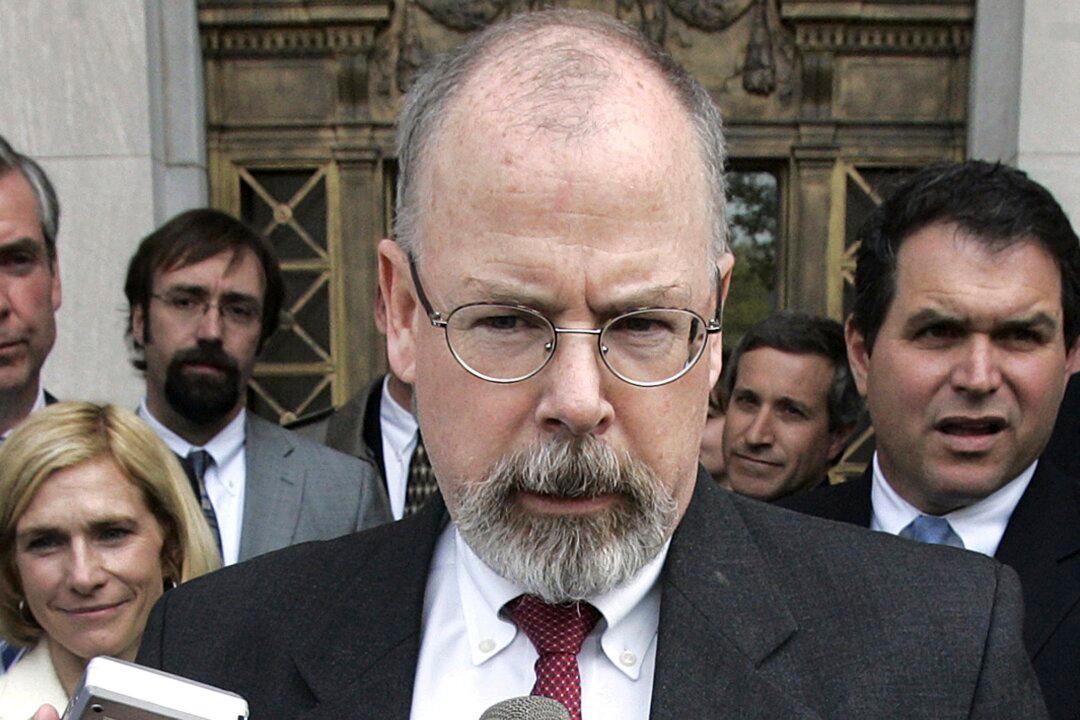Former Hillary Clinton campaign lawyer Michael Sussmann, who is accused of lying to the FBI when he claimed he wasn’t representing anyone while handing over information about then-candidate Donald Trump in 2016, also made false statements to CIA officers in a meeting after Trump was sworn into office, according to new filings by special counsel John Durham’s team.
Sussmann told James Baker, the FBI’s general counsel at the time, that he had “time-sensitive (and sensitive)” information to share, before the pair met, according to a text message recently disclosed by prosecutors. In the same message, Sussmann claimed he was “coming on my own—not on behalf of a client or company,” even though he'd been directed to deliver the information by Rodney Joffe, a technology executive, and billed the Clinton campaign for the work, according to prosecutors.





